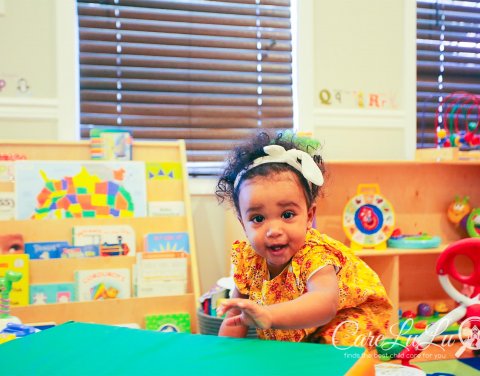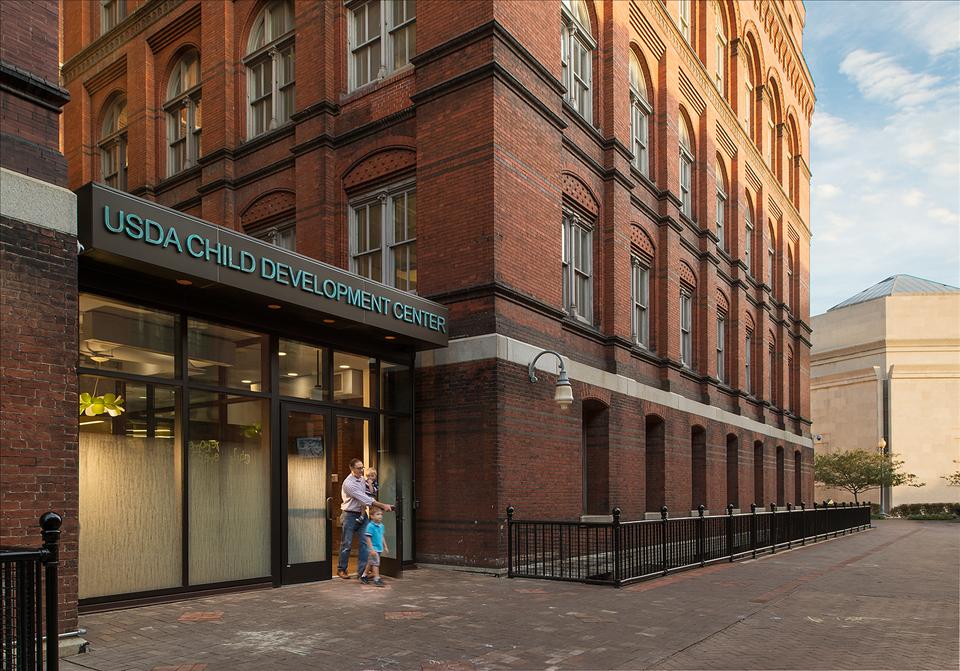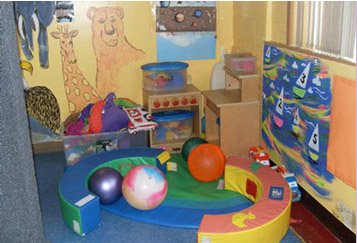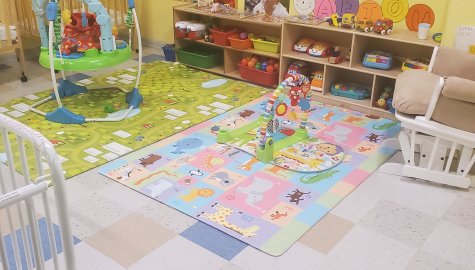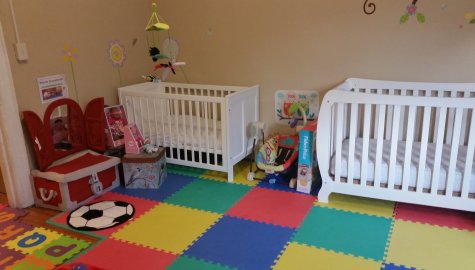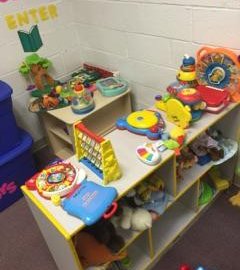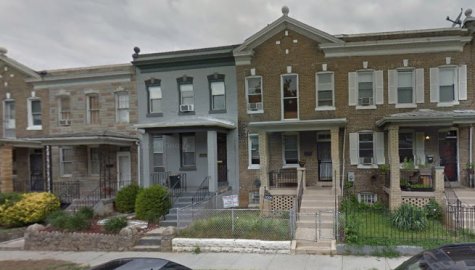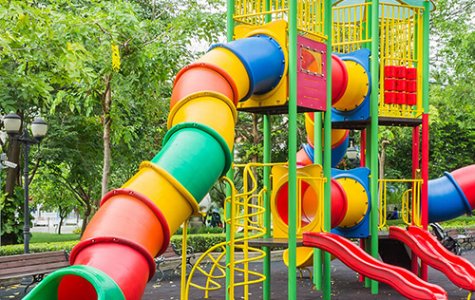
About Infant Daycare Near Me
Infant daycare can be found in a variety of settings, although child care for infants will generally be provided within a child care center or home daycare attended by older children as well. Accepting children as young as a few weeks old, infant child care centers can be a lifesaver for families in which neither parent will be staying at home full-time. Besides being able to work, many working parents will also enjoy the social network of other families that often arises within a child care community. However, because of the lower teacher-to-child ratio required, the cost of infant child care is higher than for older children. Indeed, infant daycare costs can be as high as $22,000/year for full-time infant care in a center, and up to $16,000/year for a home daycare.
Depending on the philosophy of a given infant child care program, a typical day might vary, but in general, a consistent schedule and guided exploratory play will be the rule. While new parents are often concerned about being separated from their baby, it's important to note that a number of infant daycares allow parents to stop by to check on their child during the day. Some even have nursing rooms for breastfeeding mothers who want to continue nursing their infant without switching to a bottle. This is especially common in infant daycares that are sponsored by the mother's employer (although it is available in many home daycares for infants, as well as child care centers.)
Some parents may worry that placing their baby in a daycare center might impact their ability to forge a strong parent-child bond. However, many studies have shown that there is no evidence to support that theory, as long as parents remain engaged with their children when they are together. In fact, most young children thrive on consistency and regular attendance at a daycare for infants provides a comfortable setting that they can rely on. Additionally, the trained child care providers, age-appropriate early education program, and face time with other little ones all can lead to a happy child and a positive developmental outcome.
While there are many potential benefits to sending your infant to a daycare, there are also some drawbacks that should be considered. First, the high cost of infant daycare can prevent a lot of families from enrolling their child in an early childhood education program. Also, while parents appreciate the social aspects of a daycare center, it's worth noting that children get sick more often in daycare. However, the good news is that they get sick less often when they get older! Finally, some parents simply prefer to have the additional bonding time that comes with keeping their child at home. Part-time child care or drop-in daycare might still be good options for those parents.
Other Infant Daycare Near Me
Recent Reviews for Infant Daycare
Shaw Little Kids Playhouse, Washington DC
"We love having our son at this daycare! He has been there since 6 months and is always happy when we pick him up. The staff are very kind and attentive and always share how his"
Read More
Florida Ave Schoolhouse, Washington DC
"She was amazing with my daughter and the only reason we left is because we moved out of state. I felt so comfortable leaving my baby with her and I felt like she cared for my baby"
Read More
People who searched for "Infant Daycare" also viewed
Frequently Asked Questions
How many infant daycares are there in the US?
There are 75,309 infant daycares in the US, based on CareLuLu data. This includes 44,225 home-based programs and 31,084 centers.
How much do infant daycares cost in the US?
The average cost of infant daycares in the US is $797 per month. This is the average price for full-time, based on CareLuLu data.
How many infant daycares offer part-time care or drop-in care in the US?
Based on CareLuLu data, 14,243 infant daycares offer part-time care or drop-in care in the US.
How many infant daycares teach a foreign language in the US (Spanish, French, Chinese, etc.)?
Based on CareLuLu data, 9,393 infant daycares speak at least one foreign language. Spoken languages include Spanish, French, Hindi, Chinese and Arabic.
Top Resources Related to Daycares
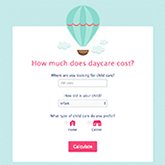
How Much Does Daycare Cost? Check the Daycare Price Calculator
How much does full time daycare near me cost? Is home daycare more affordable than a center?
How much does full time daycare cost? Is home daycare near me more affordable than a center? Use our Daycare Tuition Calculator to find out average daycare tuition rates in your zip code.
See More
Child Care Center vs. Home-Daycare: Pros & Cons
Which environment is better, a child care center or a home-based daycare? The answer is simple...
During a child care seminar for parents and parents-to-be, I realized the differences between child care centers and home-based daycares were unclear to a lot of families. I was asked which environment was the best, center or home. My answer was simple...
See More
Preschool Teaching Philosophies in a Nutshell
Montessori, Waldorf, Reggio Emilia, High-Scope... which preschool teaching philosophy is the best?
Montessori, Waldorf, Reggio Emilia, High-Scope, Bank Street... Most likely you've never come across such terms, unless of course... you started looking for a preschool! Which preschool teaching philosophy is the best? Find out how they are different.
See More
Switching Daycares: 7 Tips for a Smooth Transition
Thinking of switching daycares? These 7 practical, expert-backed tips will help you prepare your child emotionally and make the change as smooth as possible.
Thinking of switching daycares? These 7 practical, expert-backed tips will help you prepare your child emotionally and make the change as smooth as possible.
See More
How To Get Your Child Care Tax Credit
Here are 10 things you need to know to claim your Child and Dependent Care Credit...
For most families, child care is the highest single household expense. But, there's good news! Uncle Sam is here to help and can offset some of your daycare costs. Here are 10 things you need to know to claim your Child and Dependent Care Credit...
See More
7 Gift Ideas for Child Care Provider Appreciation Day
Are you looking for gift ideas for Child Care Provider Appreciation Day? We've got 7 memorable suggestions to celebrate the ones who care for your little ones.
Are you looking for gift ideas for Child Care Provider Appreciation Day? We've got 7 memorable suggestions to celebrate the ones who care for your little ones.
See More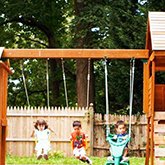
What to Look for During a Child Care & Preschool Tour
Make the most of your daycare tour, here's how to evaluate the program before your child enrolls.
The daycare and preschool tour is a (maybe even the) key moment in the decision making process, so it's important that you make the most of your daycare tour. Here's how to evaluate the child care program before your child enrolls.
See More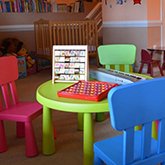
10 Tips for Finding Great Child Care
Here are 10 tips to help you find affordable and quality child care.
When I needed a daycare and a preschool for my girls, I spent days on Google, phone, and visiting in person. I toured 16 centers before settling for the one that felt right for us. Here are 10 tips to help you find quality child care more easily.
See More
How to Get Your Child to Share Their Day at Daycare & Preschool
"How was your day?" you ask your preschooler. If you're lucky, you'll get "Good." Here's why...
"How was your day?" you ask your preschooler. If you're lucky, you'll get "Good." "Why doesn't my little one tell me about her day?" you wonder. This is a parenting conundrum that baffles many. There are a few possible reasons...
See More
How to Find the Best Daycare for You
In this post, we'll walk you through how to find a daycare and criteria to help you narrow down options.
There are many things to consider when searching for the best daycare for your family, which can understandably leave you feeling overwhelmed. In this post, we'll walk you through how to find a daycare and criteria to help you narrow down options.
See More
